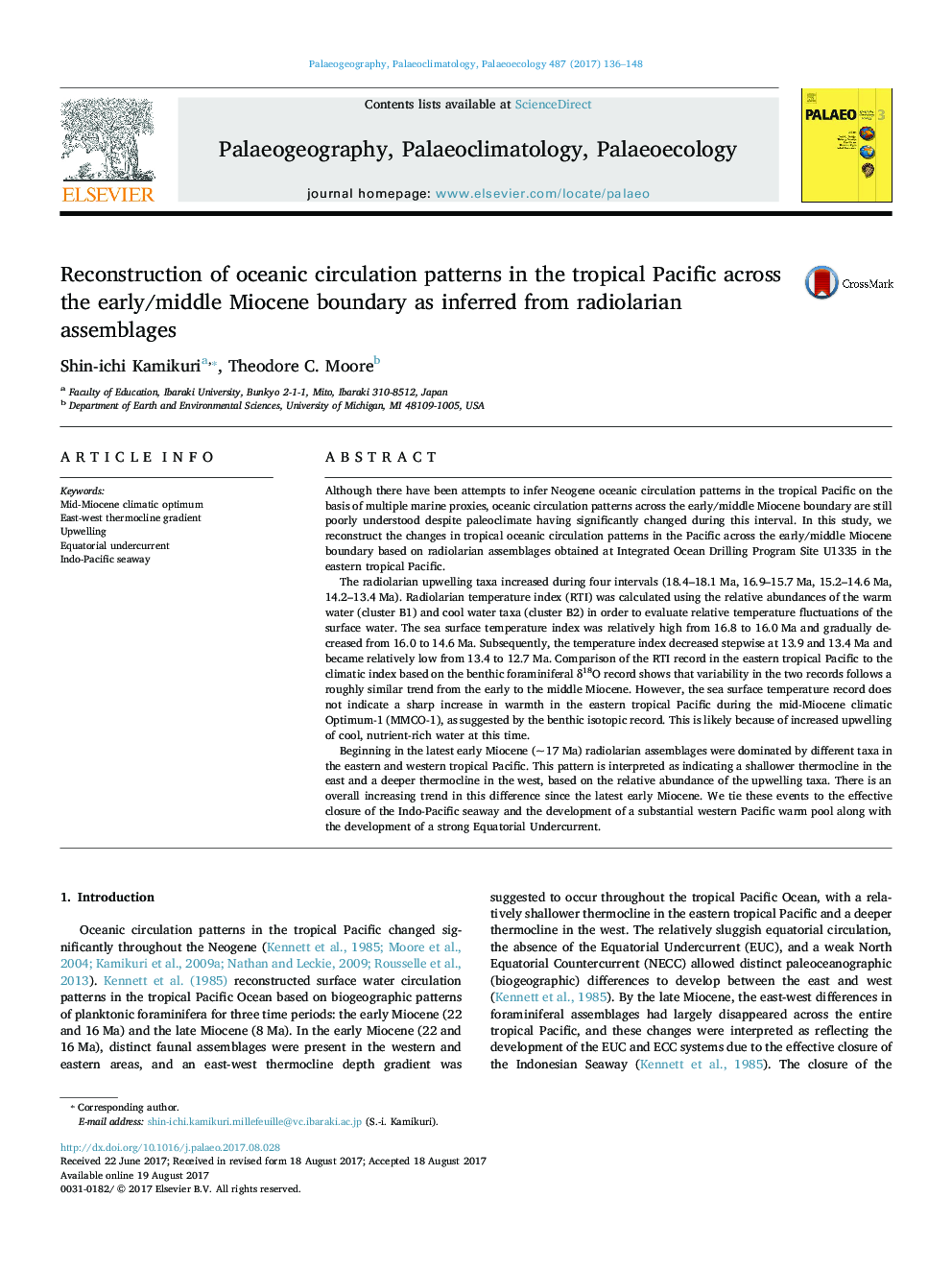| Article ID | Journal | Published Year | Pages | File Type |
|---|---|---|---|---|
| 8868557 | Palaeogeography, Palaeoclimatology, Palaeoecology | 2017 | 13 Pages |
Abstract
Beginning in the latest early Miocene (~Â 17Â Ma) radiolarian assemblages were dominated by different taxa in the eastern and western tropical Pacific. This pattern is interpreted as indicating a shallower thermocline in the east and a deeper thermocline in the west, based on the relative abundance of the upwelling taxa. There is an overall increasing trend in this difference since the latest early Miocene. We tie these events to the effective closure of the Indo-Pacific seaway and the development of a substantial western Pacific warm pool along with the development of a strong Equatorial Undercurrent.
Related Topics
Physical Sciences and Engineering
Earth and Planetary Sciences
Earth-Surface Processes
Authors
Shin-ichi Kamikuri, Theodore C. Moore,
